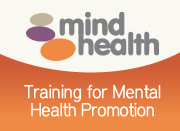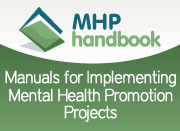26/08/2009
Tool Information
Tool Description
The Good Behaviour Game (GBG) is a 1st-2nd grade classroom-based management strategy for decreasing aggressive/disruptive student behavior and promoting pro-social behaviour by reinforcing inhibition in a group context. The goal of the GBG is to create a safe and predictable classroom environment which will foster improved learning and reduce the developmental risks of antisocial or disruptive classroom behaviour.
Tool Characteristics
Application in the Field: Applied internationally
Stage of Development: Well established
Evaluation and Research: Studies/Technical Data available
Beneficiary Involvement in Design: No information found
Evaluation Description
Coalition for Evidance-Based Policy in U.S. has acknowledged GBG as one of the social programs that work. Follow-up studies have shown that GBG decreases the probability of drug and alcohol abuse/dependence, cigarette smoking, conduct and mental health disorders, drop-out and increases the probability of high school graduation.
Following publications enable to meet the results of studies carried out on GBG:
Furr-Holden, C. Debra M., Nicholas S. Ialongo, James C. Anthony, Hanno Petras, and Sheppard G. Kellam. “Developmentally inspired drug prevention: Middle school outcomes in a school-based randomized prevention trial.” Drug and Alcohol Dependence. Issue 73, 2004, pp. 149-158.
Ialongo, Nick, Jeanne Poduska, Lisa Werthamer, and Sheppard Kellam. “The Distal Impact of Two First-Grade Preventive Interventions on Conduct Problems and Disorder in Early Adolescence.” Journal of Emotional and Behavioral Disorders. Volume 9, Issue 2, Fall 2001, pp. 146-160.
Storr, Carla L., Nicholas S. Ialongo, Sheppard G. Kellam, and James C. Anthony. “A randomized controlled trial of two primary school intervention strategies to prevent early onset tobacco smoking.” Drug and Alcohol Dependence. Issue 66, 2002, pp 51-60.
Source:
Kellam, Sheppard G., C. Hendricks Brown, Jeanne Poduska, Nicholas Ialongo, Hanno Petras, Wei Wang, Peter Toyinbo, Holly C. Wilcox, Carla Ford, and Amy Windham. “Effects of a Universal Classroom Behavior Management Program in First and Second Grades on Young Adult Behavioral, Psychiatric, and Social Outcomes.” Drug and Alcohol Dependence, 95S, 2008, S5-S28.
Kellam, Sheppard G. and James C. Anthony. “Targeting Early Antecedents to Prevent Tobacco Smoking: Findings From an Epidemiologically Based Randomized Field Trial.” American Journal of Public Health. Vol. 88, No. 10, October 1998, pp 1490-1495.
Contact Details
Organisation Name: Center for the Study and Prevention of Violence, Institute of Behavioral Science,University of Colorado at Boulder
Address: 1877 Broadway, Suite 601
Postal Code: CO 80302
Country: United States
Email: cspv@colorado.edu
Telephone: (303) 492-1032



